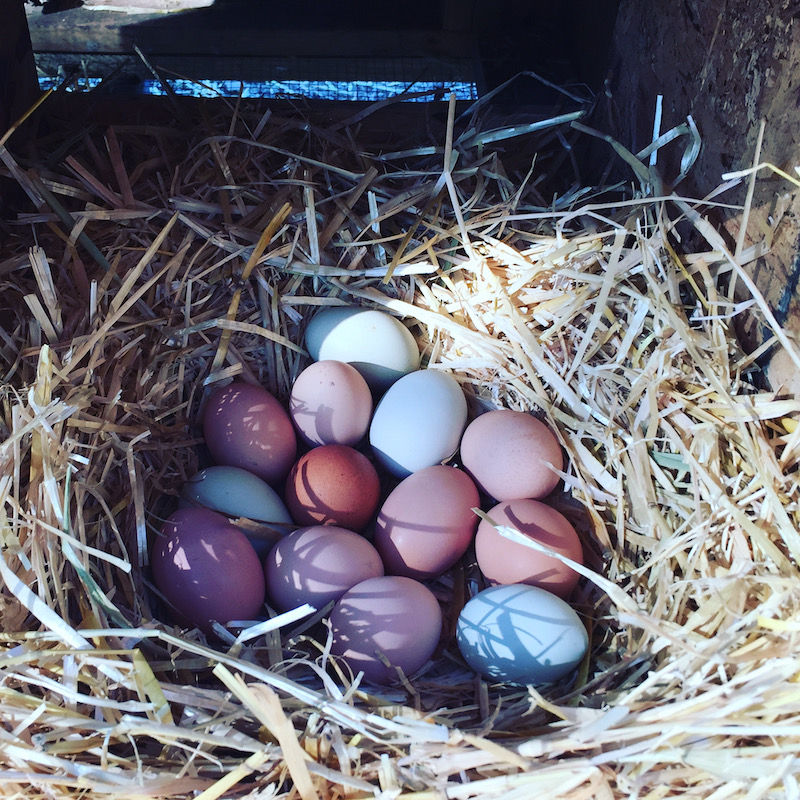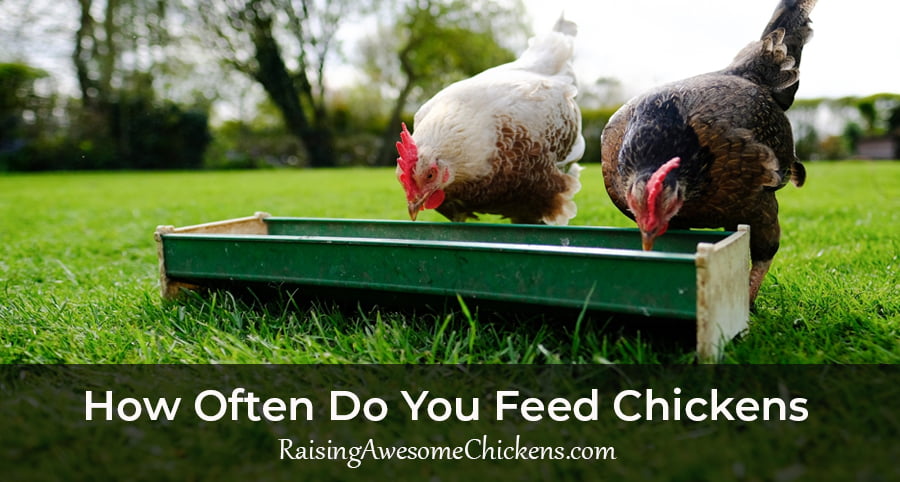Last Updated on February 11, 2024 by AwesomeChickens
Can chickens eat grapes? In this article, we’ll clear up everything behind that curious question. In the end, you may be surprised by what you read.
For those of us who have been around the block with chickens, we know that, given the chance, a chicken will eat just about anything. A separate question is: should they?
Not everyone has the same experience raising chickens. As the size of the flock grows, the harder it can be to monitor the birds and feed them. One way to add variety and life to your chicken-raising enterprise is to bring in new foods. Grapes, for example.
Table of Contents
The Verdict
There’s no need to beat around the bush:
Yes! Chickens can eat grapes. In fact, grapes are one of a chicken’s most favored foods. Why? The main reason would be the high sugar content of grapes regardless of the type, color, or season. Chickens the world over love grapes.
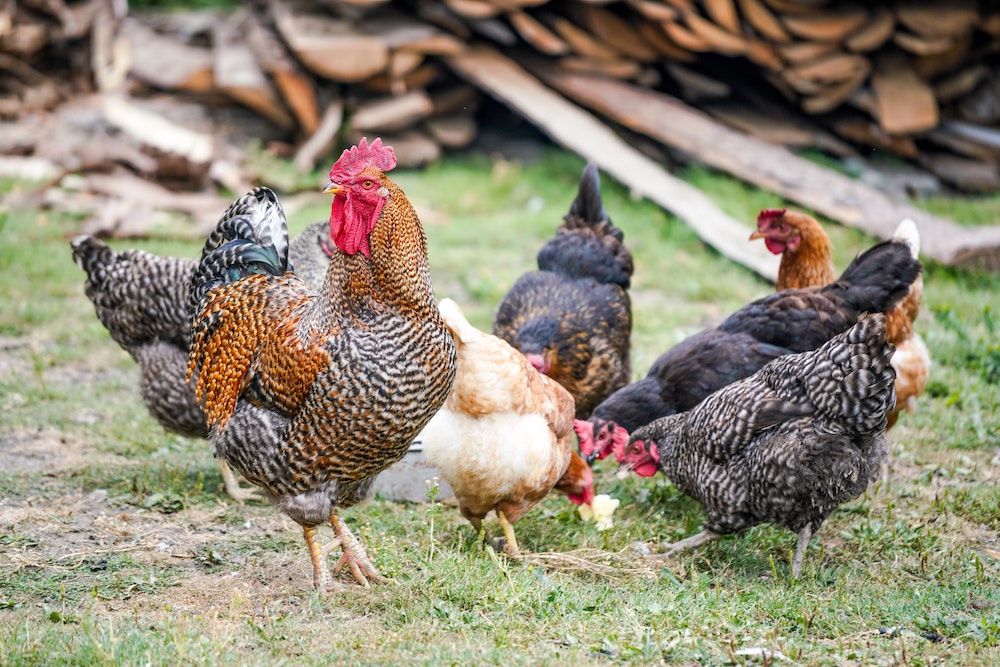
Not only are grapes safe for chickens to eat, but they are also relatively healthy in small portions. As long as you feed your flock in moderation, there should be no reason why grapes can’t join your list of approved foods.
But, let’s return to the question we posed above. “Should we feed chickens grapes?” The answer to this isn’t so obvious. There are several problems with grapes in your chicken coop that you should know about.
What About Raisins?
We said before that the primary nutritional element in grapes is sugar. Grapes are the ninth most sugary fruits in existence, with some varieties holding over 15g or 4 tsp of sugar per cup. For humans, that’s a lot. But for chickens, you can imagine how much of a sugar rush just one grape has. And if grapes are high in sugar, raisins are even higher.
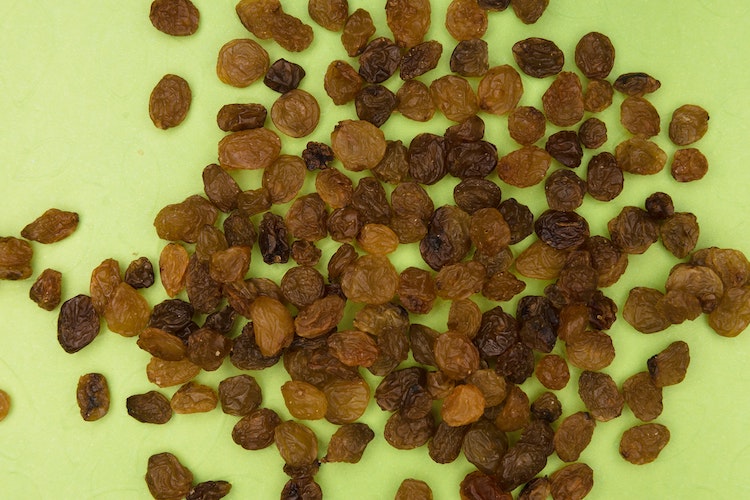
Can chickens have grapes? Yes. Can chickens have raisins? Yes. Raisins are nothing more than dried grapes. However, the sugar content of raisins is very high.
It is safe for chickens to eat raisins, but we don’t recommend feeding raisins often. Raisins are easier for chickens to eat in excess because the water content is virtually zero. That allows chickens to overeat raisins at a higher frequency than grapes. Raisins can cause obesity and carbohydrate-related diseases in chickens.
Can Chickens Eat Grape Stems, Vines, Or Leaves?
It’s best to think of grapes (and especially raisins) as treats for chickens rather than serious food. But, as we know, there is more to a grape than the fruit itself. What about the grape stem, the vines, or the grape leaves themselves?
The answer is a yes on all fronts–with a couple of caveats.
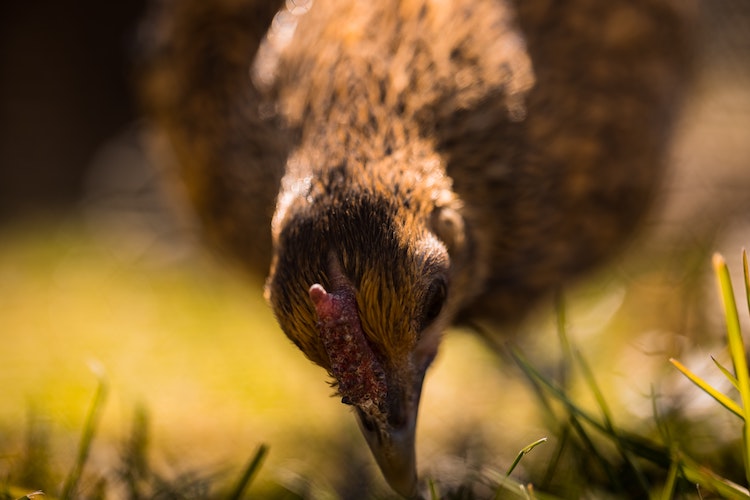
Grape stems attach each fruit to the larger grape stalk, then to the vines. Ask anyone who loves grapes: dealing with grape stems is just part of the fun of eating grapes. While humans may prefer to remove the stem from the fruit, chickens love them.
Grape stems add necessary fiber to the chicken diet. Grapevines too, as well as leaves. They are all safe for chickens to eat and digest. Just make sure to wash the stem and vines before feeding your chickens. Pesticides commonly live in the fibrous material and chickens can get sick if they’re exposed to too much.
Of course, don’t feed your chickens whole grape vines or leaves. If you are going to include them in their diet, snip them into digestible pieces. No longer than inch-long pieces. Usually, chickens will peck around tough parts, so there’s no need to spend all day cutting up vines.
Nutritional Values
What nutrition do chickens receive from grapes? The nutritional breakdown is as follows:
- 97% Carbohydrates (sugars)
- 3% Protein
- 1% Fats
The figures above all vary from one grape species to another, but these are average numbers.
Additionally, grapes and grape products carry a few mineral and vitamin properties. They have vitamins K, E, C, and A, as well as trace amounts of Folate. They have good levels of Potassium, Fiber, and Iron, too.
Dangers to Avoid
The main precaution to keep in mind before feeding your chicken flock grapes is sugar content. Since grapes are virtually little sacs of sugar-water, chickens obviously favor them. There’s no limit–except the size of their stomachs–to how many grapes a chicken will eat if given the chance. That’s why you have to feed in moderation.
The best way to reduce the number of grapes your chickens eat is to cut them into quarters. This method allows the chickens to slow down and not eat as much.
The second danger to feeding chickens grapes is a spoiled appetite. When chickens eat too much sugar at once, they can lose their appetite for protein-rich meals. The chickens will experience a sugar boost and raised energy levels immediately after eating grapes. But after the come-down, they may not eat all their feed.
Chickens can lose bone strength, vitamin deficiency, gain weight, and even contract diabetes in extreme cases.
The third danger has to do with pitted grapes. Don’t feed chickens pitted grapes. Chickens can digest pits easily enough, but they can swallow them and block their breathing.

The final danger with grapes is to avoid giving them to dogs. Grapes are highly toxic to dogs. If your chicken coop is on a farm or an area where canines share the space with your birds, then it’s better not to feed chickens (or any animal) grapes. Grapes are so toxic to dogs that they can cause renal failure in as little as 72 hours. Grapes and dogs do not mix!
A Final Word
Can chickens eat grapes? Yes, wholeheartedly. If you give your chickens a chance to taste them, you’ll remember the sight for your whole life. There’s no doubt about it: chickens go crazy for grapes and raisins!
There’s a good reason why all chickens love grapes. They are basically the closest to a sugar cookie that a chicken gets. And you should feed chickens grapes. But reserve them as treats rather than as a quick source of energy. Grapes are a great way to incentivize your flock and give them a nice treat, but not a long-term solution.


